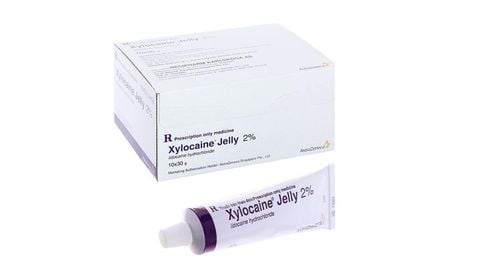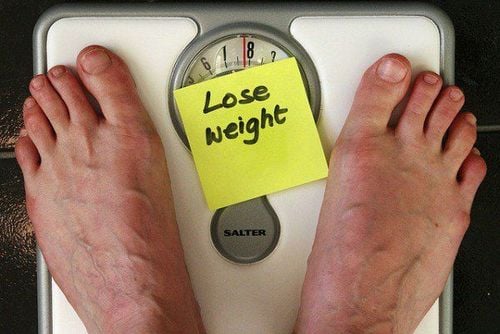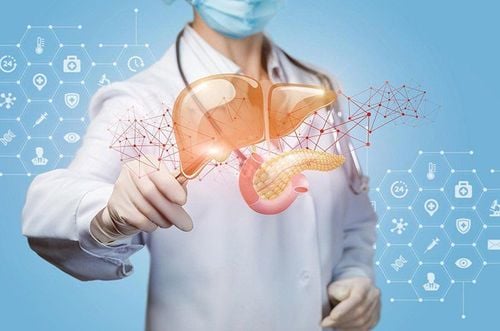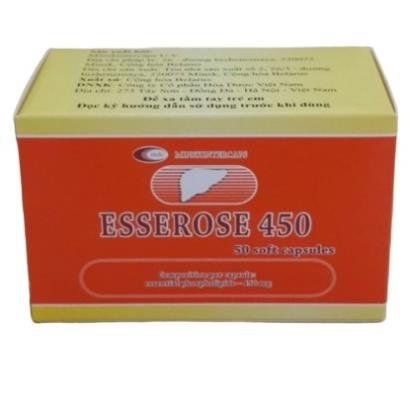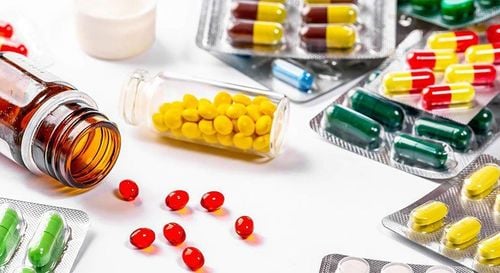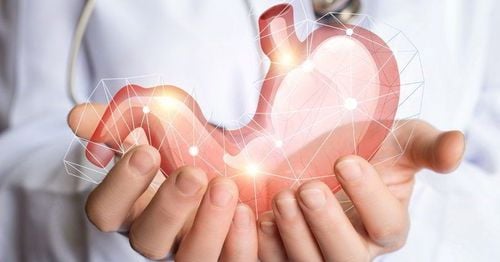This is an automatically translated article.
The article was written by MSc Bui Chi Nam - Gastroenterologist, Vinmec Times City International General HospitalAccording to the World Health Organization (WHO) in 2018, stomach cancer is the most common cancer, second only to liver cancer and lung cancer in terms of frequency, accounting for 10% of all cancers.
In Vietnam each year, there are 17,500 new cases of stomach cancer and 15,000 deaths (86%), the main cause of death is late detection. If detected early and treated promptly, the 5-year survival rate is up to 90%.
Currently, the average survival rate after 5 years after detecting stomach cancer in different countries is very different: USA 29%, Vietnam 14%, Japan 80%. How did Japan make the 5-year survival rate of stomach cancer so high? The answer is to have a prevention program with the goal of early detection and timely treatment.
According to the Japan Cancer Society, the gastric cancer screening program includes
Prevention: Including changes in lifestyle and diet, avoiding exposure to carcinogens, taking drugs, etc. The aim is to reduce the carcinogenic factor and enhance the immune factor against cancer. Screening: The goal is to detect precancerous lesions such as adenoma, dysplasia, intestinal metaplasia and early cancer, and have timely treatment measures.
1. How to prevent stomach cancer?
According to the Japan Cancer Society, prevention of stomach cancer includes the following main points:
Reasonable physical activity, health promotion, obesity prevention
Mental health maintenance, avoiding stress
Strengthen antioxidants: Eat lots of green vegetables, fresh fruits, provide enough vitamin C, vitamin E...
Don't smoke, avoid abusing alcohol, smoked meat, fried, eat a lot of red meat
Do not eat salt: According to WHO, an adult should not eat more than 5 grams of salt per day (2 teaspoons). Reduce salt intake in the following ways:
Regularly eat boiled food. Limit processed foods. Reduce stock, rim, don't eat main noodles. Read the salt content on the product before buying. Do not pour fish sauce, gravy, braised fish on rice. Do not drink a bowl of pho broth, vermicelli, or broth. Eradicating HP bacteria: According to WHO recommendations, HP bacteria are classified as group I agents causing stomach cancer.
Avoid direct contact, ingestion of harmful chemicals: Herbicides, plant protection pesticides, growth stimulants, genetically modified foods...heavy metals, radioactive substances.
Prophylaxis with drugs: Currently, there are a number of anti-oxidants and anti-inflammatory drugs (such as NSAIDs acting on Cox2) that have a preventive effect on stomach cancer, but have not been widely used, but have not been widely used. used in some special cases and prescribed by the doctor.

2. Need to be screened for stomach cancer when experiencing the following symptoms
Mild abdominal discomfort such as nausea and loss of appetite. Difficulty swallowing due to a tumor involving the upper part of the stomach, near the esophagus Feeling of fullness after taking only small amounts of food The following symptoms may indicate advanced disease:
Fatigue Weight loss Anemia iron deficiency Blood loss - Vomiting of blood or coffee grounds or black stools Nausea and vomiting - Late symptoms due to obstruction of gastric circulation due to advanced cancer
3. Who should be screened for stomach cancer?
Male/Female, > 18 years old should have regular check-ups to screen for stomach cancer. Diet lacking in fresh fruits and vegetables, habit of eating salty and sour foods, salted or smoked meat and other foods. Poorly preserved products Regular smoking People who have been treated for peptic ulcer disease or duodenal ulcer with gastrectomy is associated with an increased risk of cancer developing in the remaining part of the stomach. Again, especially at least 15 years after surgery Family history of stomach cancer People with blood type A are also at increased risk.
4. How to screen for stomach cancer?
Step 1: Identify risk factors.
Blood test with Pepsinogen I/II ratio < 3 and presence of HP bacteria: HP Ab (+), HP Ag (+) stool test or UBT (+) breathing test.
Contrast X-ray of the stomach to detect lesions in the stomach: ulcers, polyps, inflammation... The family has a blood relative with cancer, has a mutated gene that causes cancer. I have cancer in other places: Breast, uterine, liver... Step 2: Perform gastroscopy for those who have at least 1 risk above.
Step 3: Conduct biopsies to make histopathology for those with suspected cancerous or precancerous lesions: Polyps, intestinal metaplasia, atrophy ... for definitive diagnosis.
Step 4: How to follow up? When is the next colonoscopy?
Test HP Ag, HP Ab, Contrast gastroscopy once a year. Those who have a normal gastroscopy, without risk factors, should have a gastroscopy every 5 years. If there is a family member with cancer, but the gastric endoscopy is normal, the colonoscopy should be performed every 3 years. People with intestinal metaplasia, severe atrophic inflammation endoscopy once a year. People with low-grade dysplasia perform endoscopy every 6 months to 1 year. People with high-grade dysplasia, need to remove the lesion through endoscopic resection (Endoscopic resection), endoscopic re-examination after 3 months. Early cancer is only localized in the mucosal layer with indications for endoscopic mucosal resection (Endoscopic - Submucosal - Dissection - ESD). Late stage cancer: Depending on the stage, methods such as: Surgery, chemotherapy, radiation therapy.... This is indicated by a specialist doctor.
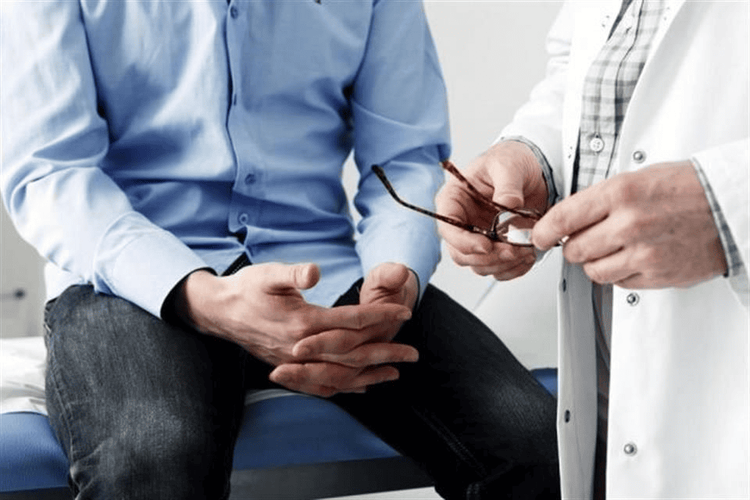
5. How early is stomach cancer treated?
According to the guidelines of the Japan Endoscopic Association, the key to the problem is early detection and minimal treatment.
What is early detection? It is the detection of precancerous and cancerous lesions but only localized in the gastric mucosa, not invading the submucosa.
What is minimal treatment? This is the treatment that completely removes the cancerous lesions through endoscopic surgery while preserving the stomach (no surgery). Currently, the most commonly used methods are EMR (Endoscopic Mucosal Resection) and ESD (Endoscopic Submucosal Dissection) which means cutting the cancerous part of the mucosa from the body.
After ESD or EMR will periodically check endoscopy depending on each case, the doctor will have specific advice but usually from 3-6 months / first year. If treated completely, the patient will not need surgery, no chemotherapy, no radiation.
6. Where should I be screened for stomach cancer?
Screening is done for patients with no clinical symptoms. In some developed countries such as Japan, where stomach cancer is a common disease, extensive screening can help detect gastric cancer early. The doctor will give you some tests to check, such as: Gastroscopy, biopsy of suspected lesions, tests for tumor markers...
At Vinmec, screening for stomach cancer is done. performed through gastric endoscopy with NBI (Narrow Banding Imaging - endoscope with narrow light frequency band) results in clearer mucosal pathological analysis results than conventional endoscopy.
Besides, with the system of Laboratory Department - Vinmec Times City International General Hospital is a synchronous testing center with a full range of fields: Biochemistry, Hematology - Blood Transfusion, Microbiology - Parasites and Pathology and 3 majors: Biochemistry, Hematology - Blood Transfusion, Microbiology - Parasitology all achieved ISO 15189:2012 certificates. Vinmec Institute of Stem Cell and Gene Technology also screened 15 common cancers in Men and 17 common cancers in Women with only one gene test.
Please dial HOTLINE for more information or register for an appointment HERE. Download MyVinmec app to make appointments faster and to manage your bookings easily.





